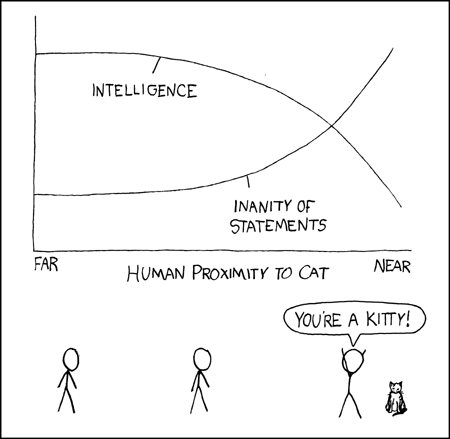I'll just say a couple of things about this.
(1) I think Sanky and I have only gotten into extended exchanges in two or three threads. And in those threads my posts generally consume somewhere between 2 to 3 posts per page at most (team 50 ppp here), and not every page by any means. I think your perceptions of this might be a bit skewed. Maybe that is because you actually read the posts and don't skip over them as some probably do, so they become tiring to you (which is understandable). But for every person who may be bummed by it like you, there are people who are not.
Witness: "I'd just like to take a minute and point out that the conversation thus far is one of the reasons I like GAF so much. Reasoned discussion between two (or more!) members that strongly disagree with each other. Neither vantage point falls along the traditional D-R axis, either." Nevertheless, I think in general I show a lot of restraint in those threads. In fact, I never responded to Sanky's last post in the shutdown thread. But I do firmly believe that deep, substantive discussions are far better and more fun to have than a series of trite observations or exclamations.
(2) Repetition may be the only effective means to correct false information given our generally defective human brains. Or, at least, it's the best thing we've got:
We present facts and evidence, and it often does nothing to change peoples minds. In fact, it can make people dig in even more. Humans also engage in motivated reasoning, a tendency to let emotions set us on a course of thinking thats highly biased, especially on topics we care a great deal about.
These two important cognitive effects can have a significant impact on society and debates in the public sphere. ...
So perhaps a single, credible refutation within a news article isnt likely to convince people to change their views. But other research suggests that a constant flow of these kind of corrections could help combat misinformation. The theory is that the more frequently someone is exposed to information that goes against their incorrect beliefs, the more likely it is that they will change their views.
Its possible there is something to be said for persistence, Reifler said. At some point the cost of always being wrong or always getting information that runs counter to what you believe is likely to outweigh the cost of having to change your mind about something. We need to figure out what is the magic breaking or tipping point, or what leads people to get to that tipping point. I think were just scratching the surface.
He pointed to a 2010 paper in Political Psychology by David P. Redlawsk and others, The Affective Tipping Point: Do Motivated Reasoners Ever Get It?
The researchers sought to determine if a tipping point exists that could cause voters to abandon motivated reasoning and view facts in a more rational way.
We show experimental evidence that such an affective tipping point does in fact exist, they write.
The existence of a tipping point suggests that voters are not immune to disconfirming information after all, even when initially acting as motivated reasoners.
This tipping point is far from being identified, but its encouraging to think that repeated efforts to debunk misinformation, or to simply to spread the truth, may have an effect.
http://www.cjr.org/behind_the_news/the_backfire_effect.php
I think quite possibly the greatest threat facing the country right now is deficit and debt hawkishness, so that being the case I will naturally tend to prioritize responding to misconceptions about the monetary system and macroeconomics.








